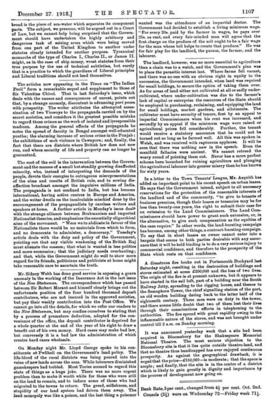The landlord, however, was no more essential to agriculture than
a chain was to a watch, and the Government's plan was to place the parasitic interest last. Where farms fell vacant, and there was no one with an obvious right in equity to the succession, the Government intended, when land was required for small holdings, to secure the option of taking them over. As for areas of laud either not cultivated at all or sadly under- cultivated, where under-cultivation was due to the farmer's lack of capital or enterprise the resources of the State should be employed in purchasing, reclaiming, and equipping the land for small holdings, market gardens, and allotments. The cultivator must have security of tenure, first by an appeal to impartial Commissioners when his rent was increased, and secondly by an appeal if the minimum wage were raised or agricultural prices fell considerably. Further, the tenant would receive a statutory assurance that he could not be turned out so long as he farmed well. All this was spoken in Welsh, and was received with rapturous applause. It will be seen that there was nothing new in the speech. Even the manifold fallacies were ancient. We cannot retread the weary round of pointing them out. Never has a more perfect scheme been launched for ruining agriculture and plunging the agricultural labourer into greater misery than he has known for sixty years.


































 Previous page
Previous page